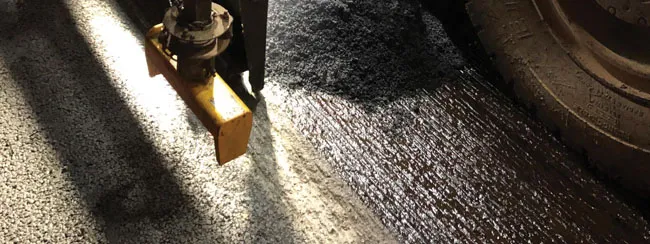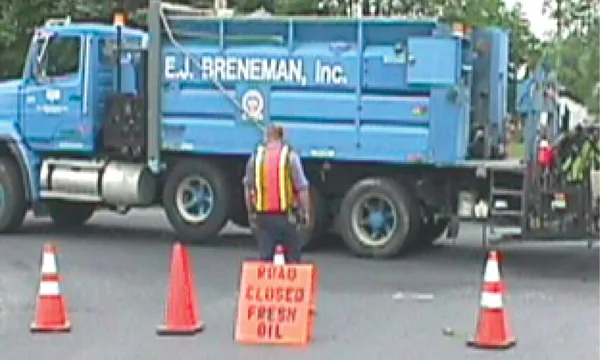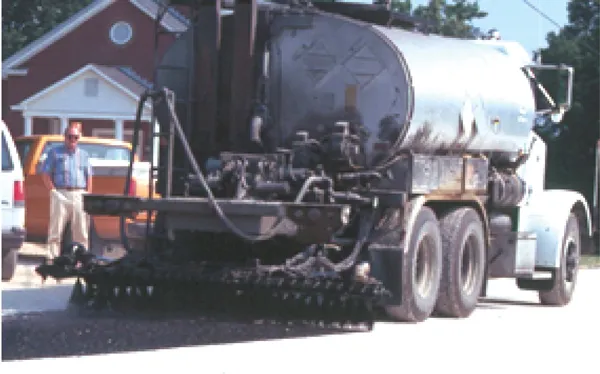
It was the first time in the UK that Hanson had laid its Tufflayer product which is designed specifically to address issues associated with reflective cracking.
The product was applied at Blackwater Junction near the town of Bournemouth on the south coast. The carriageway was suffering from the effects of reflective cracking caused by difficult ground conditions and the weight and volume of traffic.
Tufflayer is a high-performance asphalt stress absorbing membrane interlayer (SAMI) which incorporates Shell Cariphalte Dense Mixture bitumen to provide optimal flexibility. The company says that it is a cost-effective alternative to geogrids and is laid using conventional asphalt paving equipment. Tufflayer was used in conjunction with Hanson’s Durafalt surface course to provide a complete asphalt solution.
Tufflayer was applied at Blackwater Junction near the town of Bournemouth on the south coast. The carriageway was suffering from the effects of reflective cracking caused by difficult ground conditions and the weight and volume of traffic.
It was laid by Hanson Contracting as part of the Dorset Highways Strategic Partnership, a 10-year collaboration with Dorset County Council, said Ian Price, Hanson Contracting project manager. “Tufflayer significantly delays the effects of reflective cracking as it provides high levels of flexibility and enhanced fatigue resistance. It also creates an impermeable layer, protecting the structure of the road from water ingress.”
Tufflayer offers an alternative SAMI to geogrid asphalt reinforcing layers by providing a highly polymerised crack relief interlay solution that also protects lower layers from water ingress by creating an impermeable layer.
Laid by conventional paving equipment, Tufflayer uses Shell’s proprietary Cariphalte Dense Mixture PMB bitumen.
Tufflayer achieves optimal flexibility, enhancing fatigue resistance by significantly delaying the effects of reflective cracking. The Tufflayer design is produced from washed crushed rock fines, limestone filler and has a high bitumen content. The design has relatively low surface texture and a very low void content, making it an ideal choice for concrete overlay or applications where reflective cracking may be an issue.









